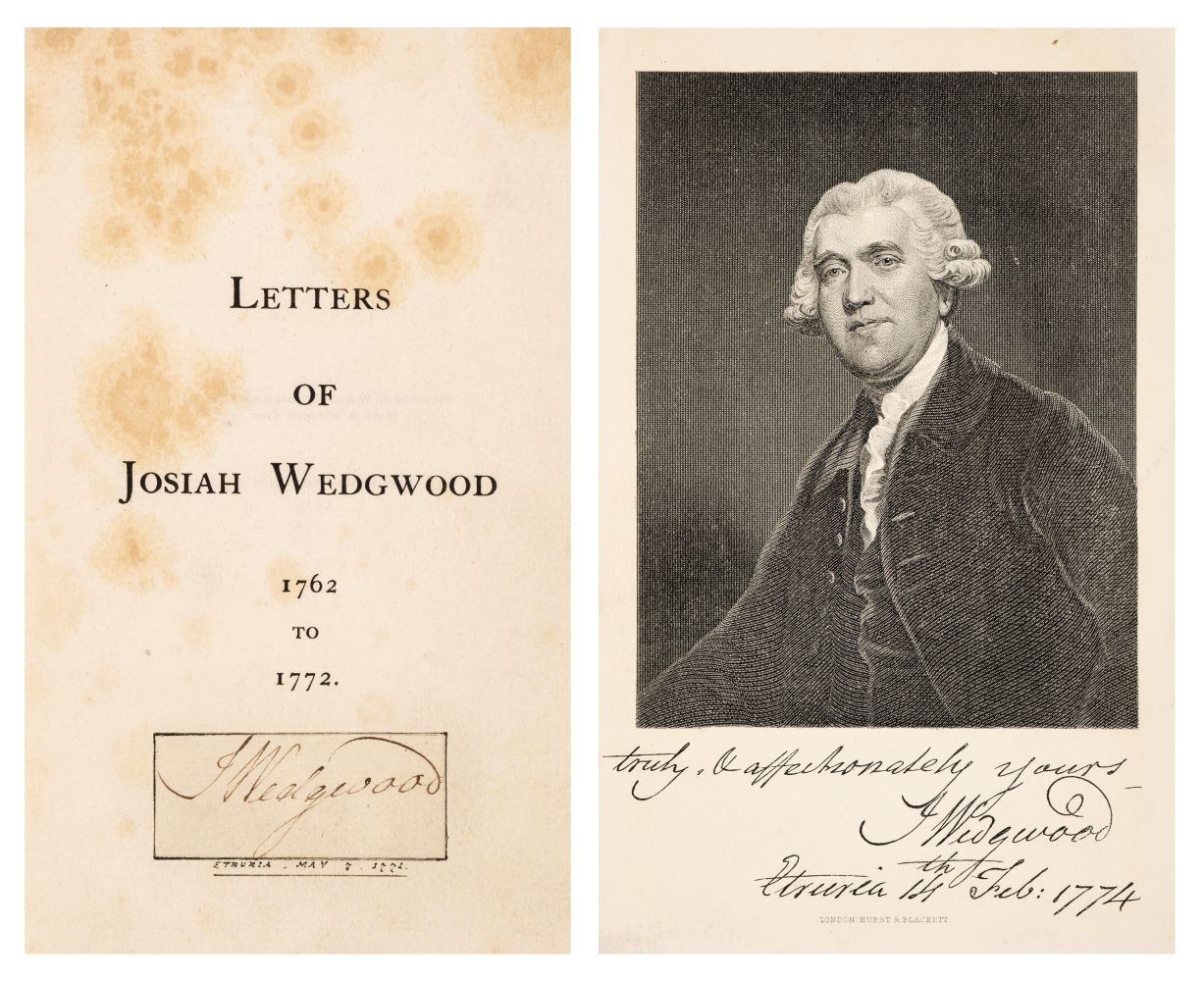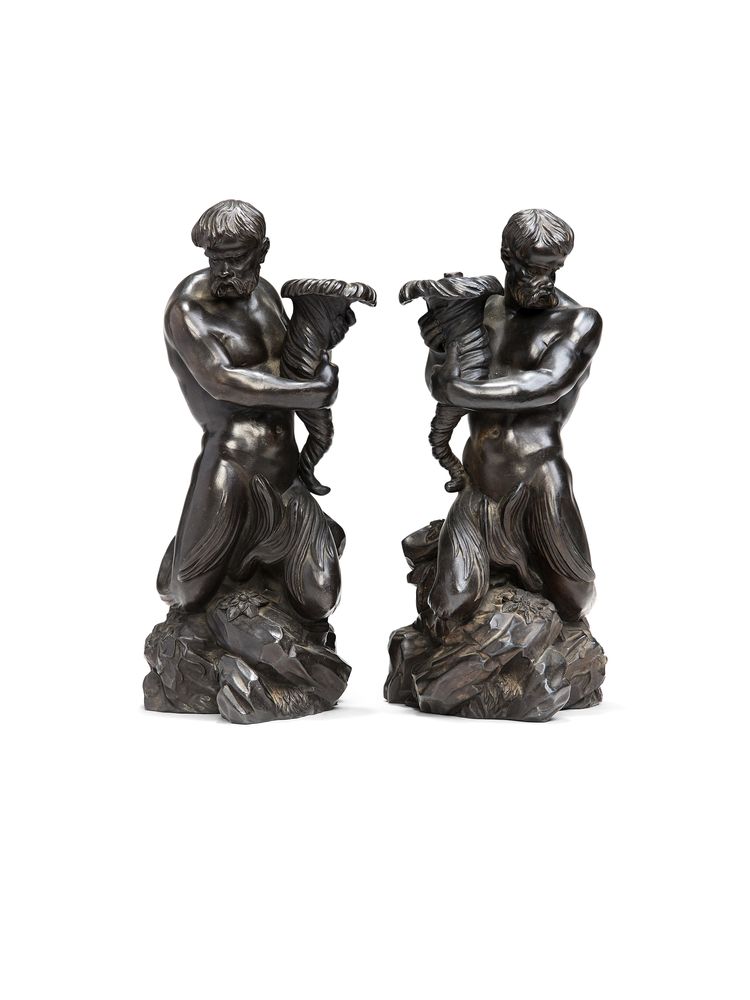Autograph letter signed (“Jos. Wedgwood”), to the Rt Hon William Eden (“Dear Sir”): writing on behalf of the General Chamber of Manufacturers of Great Britain, Wedgwood expresses his confidence in Eden on his departure for France to negotiate a treaty of commerce, and assures him that Matthew Boulton shares his confidence (“...I have the pleasure of assuring you, that the manufacturers in general, whom I have either corresponded or conversed with upon the subject of your mission, rejoice with me on your appointment, and applaud you for accepting a charge of so much importance to the interests of this nation, and for which they are convinced that you are better qualified than almost any other man in the kingdom. One of them, Mr Boulton of Birmingham, in a letter which I have this moment received from him, says, ‘If Government had left the appointment of a commissioner to settle a treaty of commerce to me, I should have fixed upon Mr Eden...´”); and in a long postscript Wedgwood enlarges upon his theme (“...You have indeed opened to my view a field capacious enough for the ablest politician to range, if not lose himself, in; my poor head grows giddy on the first entrance...With regard to our particular manufacture, we only wish for a fair and simple reciprocity, and I suppose (but I speak without any authority) that our Manchester & Birmingham friends would be willing to give & take in the same way...”), three pages, 4to, contemporary docket, some ink-smudging (some seemingly from printer´s ink), guard, Etruria, 5 January 1786 WEDGWOOD AND BOULTON HERALD AN ERA OF FREE TRADE: Wedgwood had formed the General Chamber of Manufacturers of Great Britain, of which he was first chairman, the year before, with Matthew Boulton´s assistance. William Eden later first Baron Auckland (and author of A History of New Holland, 1788), was a friend of Adam Smith´s and a Lord of the Committee of Council on Trade and Plantations. He had been selected by Pitt to negotiate a commercial treaty with France, one of the most ambitious projects of his peacetime premiership. In face of strong opposition from many members of the governments of both countries, Eden succeeded in negotiating the Vergennes (or Eden) Treaty, signed on 26 September 1786, which opened up the French market to Britain´s hungry export trade. Overall, the terms of the treaty were so favourable to England that Napoleon was later to claim that it bankrupted France and brought about the Revolution. Although it did not introduce complete free trade – as advocated by Eden´s mentor Adam Smith in his Wealth of Nations – it did greatly reduce duties, including those on Wedgwood´s pottery and Boulton´s manufactures. Interrupted by the Revolutionary and Napoleonic Wars, Eden´s project was to be taken up again by Huskisson in the 1820s, and has, of course, come to fruition in our own day.
Autograph letter signed (“Jos. Wedgwood”), to the Rt Hon William Eden (“Dear Sir”): writing on behalf of the General Chamber of Manufacturers of Great Britain, Wedgwood expresses his confidence in Eden on his departure for France to negotiate a treaty of commerce, and assures him that Matthew Boulton shares his confidence (“...I have the pleasure of assuring you, that the manufacturers in general, whom I have either corresponded or conversed with upon the subject of your mission, rejoice with me on your appointment, and applaud you for accepting a charge of so much importance to the interests of this nation, and for which they are convinced that you are better qualified than almost any other man in the kingdom. One of them, Mr Boulton of Birmingham, in a letter which I have this moment received from him, says, ‘If Government had left the appointment of a commissioner to settle a treaty of commerce to me, I should have fixed upon Mr Eden...´”); and in a long postscript Wedgwood enlarges upon his theme (“...You have indeed opened to my view a field capacious enough for the ablest politician to range, if not lose himself, in; my poor head grows giddy on the first entrance...With regard to our particular manufacture, we only wish for a fair and simple reciprocity, and I suppose (but I speak without any authority) that our Manchester & Birmingham friends would be willing to give & take in the same way...”), three pages, 4to, contemporary docket, some ink-smudging (some seemingly from printer´s ink), guard, Etruria, 5 January 1786 WEDGWOOD AND BOULTON HERALD AN ERA OF FREE TRADE: Wedgwood had formed the General Chamber of Manufacturers of Great Britain, of which he was first chairman, the year before, with Matthew Boulton´s assistance. William Eden later first Baron Auckland (and author of A History of New Holland, 1788), was a friend of Adam Smith´s and a Lord of the Committee of Council on Trade and Plantations. He had been selected by Pitt to negotiate a commercial treaty with France, one of the most ambitious projects of his peacetime premiership. In face of strong opposition from many members of the governments of both countries, Eden succeeded in negotiating the Vergennes (or Eden) Treaty, signed on 26 September 1786, which opened up the French market to Britain´s hungry export trade. Overall, the terms of the treaty were so favourable to England that Napoleon was later to claim that it bankrupted France and brought about the Revolution. Although it did not introduce complete free trade – as advocated by Eden´s mentor Adam Smith in his Wealth of Nations – it did greatly reduce duties, including those on Wedgwood´s pottery and Boulton´s manufactures. Interrupted by the Revolutionary and Napoleonic Wars, Eden´s project was to be taken up again by Huskisson in the 1820s, and has, of course, come to fruition in our own day.















Testen Sie LotSearch und seine Premium-Features 7 Tage - ohne Kosten!
Lassen Sie sich automatisch über neue Objekte in kommenden Auktionen benachrichtigen.
Suchauftrag anlegen